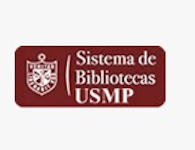Vaginal microbiome diversity and preterm birth: results of a nested case–control study in Peru

View/
Trabajo
(application/pdf: 490.6Kb)
(application/pdf: 490.6Kb)
Date
2020-01Author(s)
Blostein, Freida
Gelaye, Bizu
Sanchez, Sixto E.
Williams, Michelle A.
Foxman, Betsy
Metadata
Show full item recordAbstract
Purpose
Preterm birth (PTB) is a major cause of neonatal mortality. The vaginal microbiome is associated with PTB, but results vary across racial/ethnic populations. Some evidence suggests gestational age affects this association. We investigated these associations in a novel population, conducting a post hoc analysis assessing if associations differed between women swabbed at different gestational ages.
Methods
We compared vaginal microbiomes from women with PTB (n = 25) to a random sample of women with term births (n = 100) among participants in the Pregnancy Outcomes, Maternal and Infant Study, conducted in Lima, Peru. Using DADA2, we identified taxa from 16S DNA sequencing and used Dirichlet multinomial mixture models to group into community state types (CSTs).
Results
If gestational age at sampling was not considered, no CST (diverse, Lactobacillus-dominated or Lactobacillus iners–dominated), was associated with PTB. Among women sampled before 12 weeks' gestation, women with Lactobacillus-dominated CSTs were less likely to have a PTB than those with a diverse CST. Among those swabbed between 12 and 16 weeks' gestation, the reverse was true.
Conclusions
Our study supports previous literature suggesting that what constitutes a healthy vaginal microbiome varies by race/ethnicity. Longitudinal studies are necessary to disentangle effects of vaginal microbiome differences over gestation.
Collections
- Artículos [274]
Publisher
Elsevier B.V.
Rights
info:eu-repo/semantics/openAccess
Funding
Instituto Eunice Kennedy Shriver de Salud Infantil y Desarrollo Humano, Estados Unidos (R01-HD-059835).







